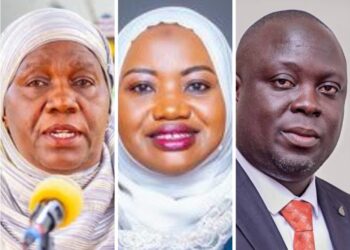This week I attended a CEO forum organised by the President’s office. It was an interesting event attended by some key government people from the Ministry of Finance, URA, Uganda Development Commission (UDC), among others. The purpose of the conference was to get feedback from the private sector on what was going well or what needs changed in government policy. At the last gathering they had looked at the issue of private equity companies operating in Uganda and found that there are very few based in Uganda because of the policy on capital gains tax, so it was decided to waive capital gains on private equity companies in order to attract more players. Ugandans often complain that they lack capital, so partnering with a private equity company can solve such issues. Under the previous policy the company would be charged 40% tax when it sold its shares after five or seven years which was a serious disincentive for foreign capital to come to Uganda. So this tax is being reversed.
We all have our problems with the URA being too aggressive in collecting tax from businesses, with the result that some businesses end up closing down.
This issue also came up, with the URA admitting that they had some issues in their system which they are trying to resolve. The plea from the private sector was – be consistent so that we know what taxes we are paying and stop this business of going back 10 years or more and coming up with massive penalties and interest. There is an issue with reconciliation of tax ledgers in the URA in which tax payments do not show on the statements, so that it appears that individuals or companies have not paid this tax. This in turn results in interest and penalties being added on. Then tax clearance certificates are withheld, or businesses are locked out of the Ipris system causing more problems. I brought up this issue and was surprised to find a senior person from the URA sitting down with me the next day to reassure me that the issue would be handled. After he had left I looked at his card and realised that he was none other than the Commissioner General himself. I must say that it is not often I get to speak to the very head of the tax department.
Interestingly the theme of this conference was on e-mobility i.e. electric vehicles. If Uganda were able to introduce electric vehicles we would be carbon neutral because all of our electricity generation is from hydro, which is clean energy. Most other countries depend on some form of dirty power generation such as coal, gas or oil, so if they shift to electric vehicles they are still not solving the carbon problem because the increased demand on their electricity grid generates more carbon. Kira Motors are pioneering the way in electric buses and if we substituted electric buses for dirty boda bodas in Kampala, we would not only decongest the city but we would reduce the pollution. We are also importing electric boda bodas at present and there is a company building charging stations for them. While the capital cost of the electric boda bodas is a little more expensive at present they are much cheaper to run.
The Permanent Secretary to the Treasury made the comment that in tax policy there are always winners and losers, and the point of such an interaction with the private sector is to ensure that there are more winners than losers. I liked his attitude. The government is currently working on the Parish Development Model and have ascertained which parishes are in a state of readiness to receive money in the form of a SACCO.
This money is supposed to be used for genuine agricultural inputs in order that farmers can increase productivity. The plan is well developed, but as we say ‘the proof of the pudding will be in the eating’. I found when I worked with KCCA that any money coming from government was seen as ‘free money’ for eating, so the level of corruption in any government scheme was high, but let us see what happens.
I was even able to have a conversation with a Commissioner in the MOF on the issue of the lack of disbursement to government departments even after a budget has already been agreed. In the case of KCCA this has resulted in work coming to a standstill on maintenance of roads, such as fixing the potholes and drainage channels. He admitted that there was a problem, but reassured me that there was a grant program to reinstate and tarmac many of Kampala’s smaller roads. As far as I am concerned it can’t come soon enough, so that we transform Kampala from a series of villages to a capital city.
Do you have a story in your community or an opinion to share with us: Email us at editorial@watchdoguganda.com













